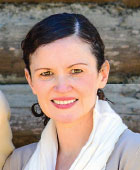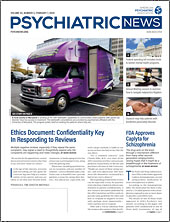“Last year and the year before, the entire fall there were terrible fires, and even though they were over 100 miles away, we still couldn’t go outside for more than five minutes without a gas mask on before we would feel sick. We had to stay inside every recess for those two falls as if it was a rainy day, even though it was anything but. The sky was pink, there was smoke in the air, and I don’t know how many more falls like that are to come. I’m worried about the future of our planet. My friends and I are trying to do everything we can. I feel like many kids all over the world care about the climate crisis like me. But the thing is, kids can’t vote. We’re just kids.”
These are the words of my 11-year-old son, who lives in Northern California and is referencing the devastating wildfires of the past several years. Like many children around the world, he is expressing fears and uncertainty about the climate crisis, which is predicted to escalate dramatically in his lifetime without bold action. What does the future look like for us, he asks? Are the adults listening, and will they act before it is too late?
As a psychiatrist with expertise in trauma and resilience, I am familiar with strategies to help trauma survivors cope with tragedy. But I have found myself struggling for words when trying to comfort my son in the face of what is predicted to be ecological collapse. How do we as adult mental health professionals help our child, adolescent, and young adult patients and our own children cope in the face of the climate crisis? Attachment theory tells us that children feel safest when they believe adults in their lives are creating a secure environment for them. But what happens when larger forces make this impossible?
Children and adolescents are at the forefront of the climate crisis. Children in the United States and worldwide, including those in indigenous communities, low-income communities, and communities of color, have already acutely suffered in hurricanes, floods, and fires in the past decade, the hottest on record. Children directly affected by disasters caused or made worse by climate catastrophe may be displaced, suffer health effects, and experience other acute traumatic impacts. More broadly, children and adolescents often experience fear and anxiety about the climate they stand to inherit. Although they did not cause the climate crisis, our youngest generations stand to bear the brunt of the crisis now and in decades to come.
We as mental health professionals must have courage and presence to support children to build resilience to the climate crisis, even when the future remains uncertain for all of us. We can ensure that children understand we hear them and that their emotional responses to the climate crisis matter to us. We can adapt evidence-based coping strategies and lessons learned from other disasters to promote resilience in younger generations so that they have the tools to adapt, cope, and fight for a sustainable future for themselves.
Psychiatrists are uniquely positioned to support younger generations by helping build resilience without creating false hope for easy fixes. We have convened a subgroup of concerned psychiatrists within the Climate Psychiatry Alliance to develop strategies for addressing the mental health impacts of the climate crisis on youth. One project is to develop a toolkit with age-appropriate, developmental guidelines to identify best practices to help children and adolescents cope with their emotional responses to climate change. Coping with the range of emotions that arise in children and adolescents about the climate, including anxiety, anger, fear, denial, and grief, will allow kids to find their own path and way forward in a new, warmer world. Those interested in joining our efforts can contact Climate Psychiatry Alliance at
[email protected]. ■
The author thanks Rylan Keast for his contributions to this article.
The views expressed in this article do not represent the views of the Department of Veterans Affairs or the U.S. government

